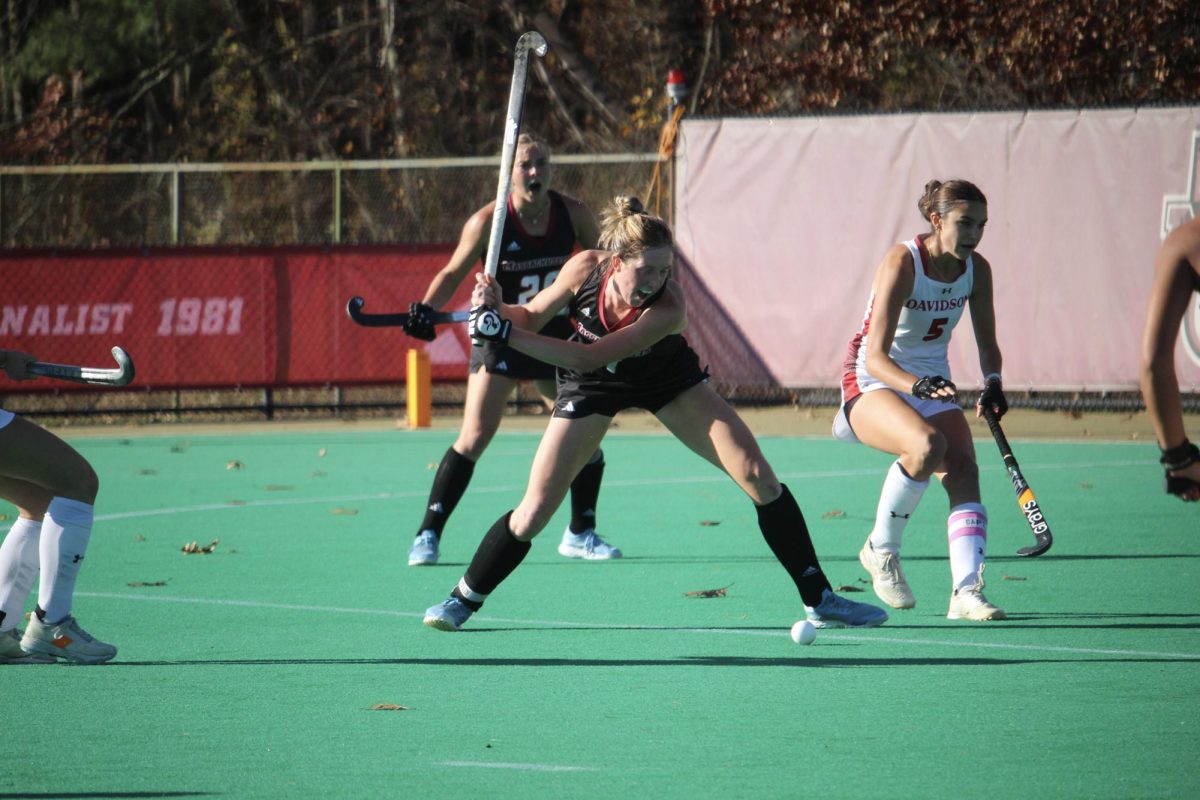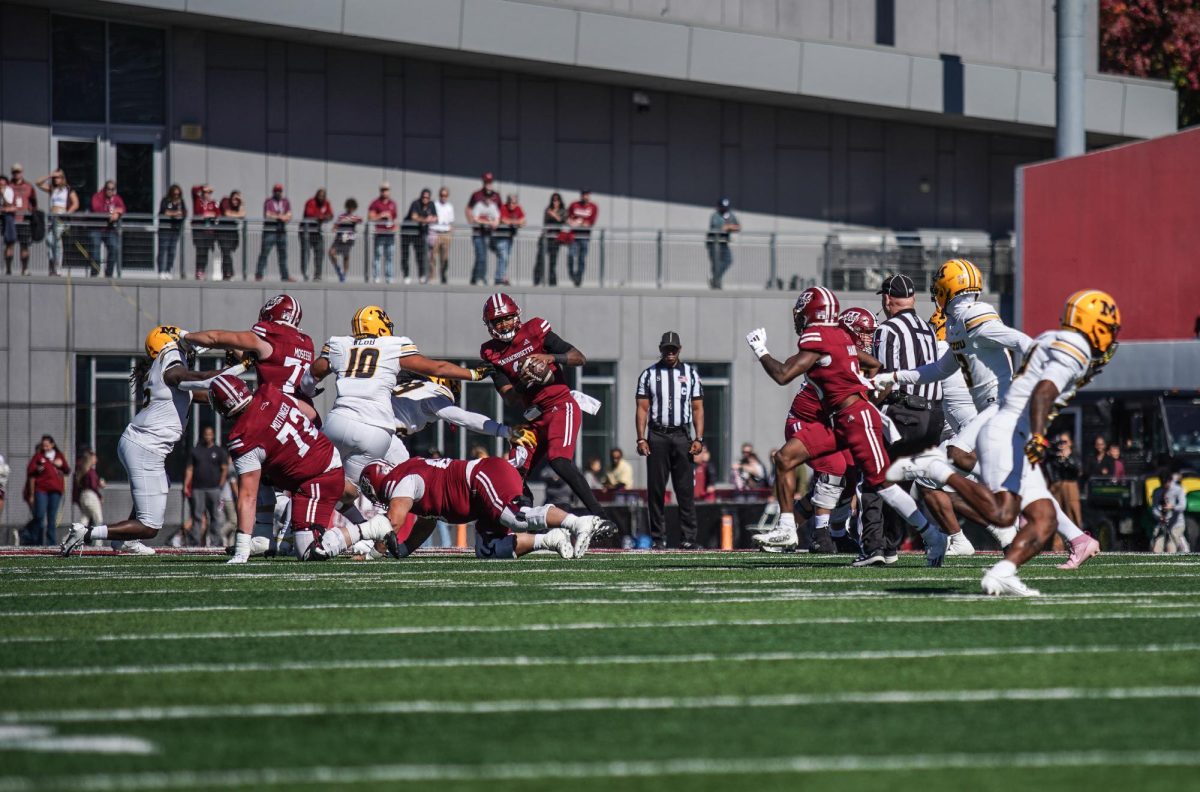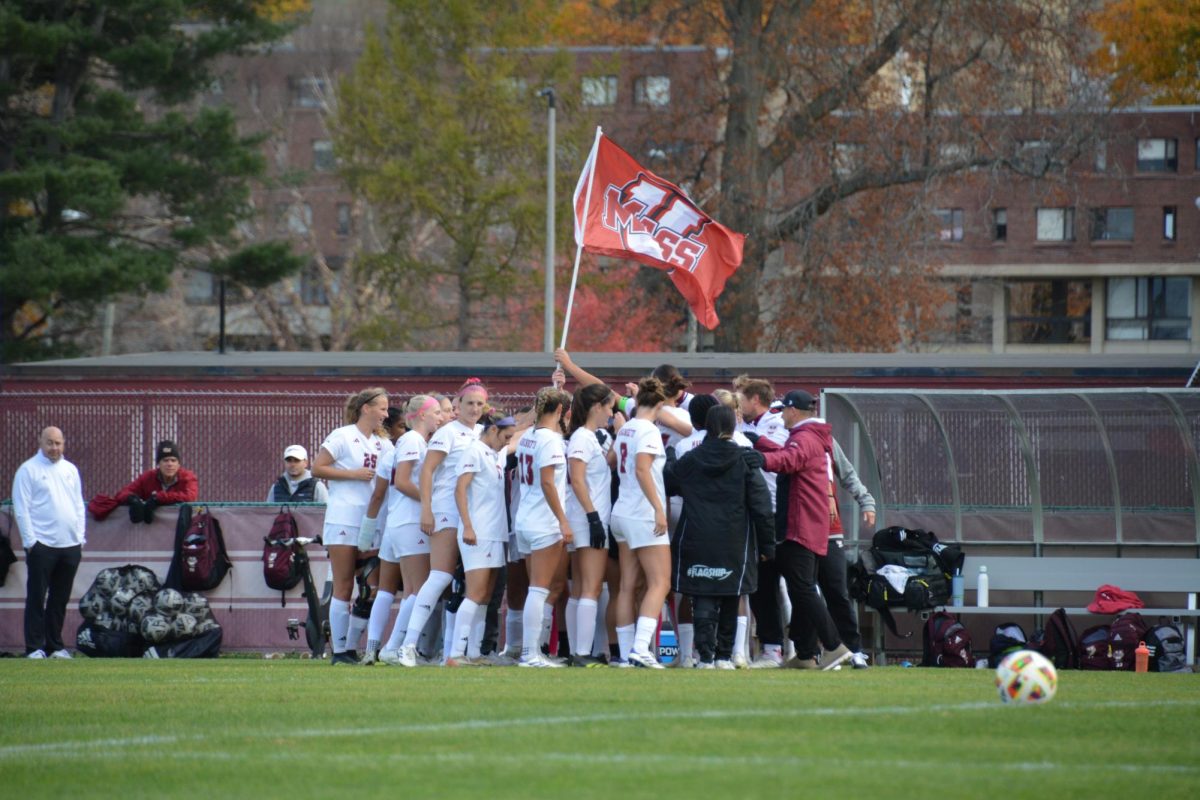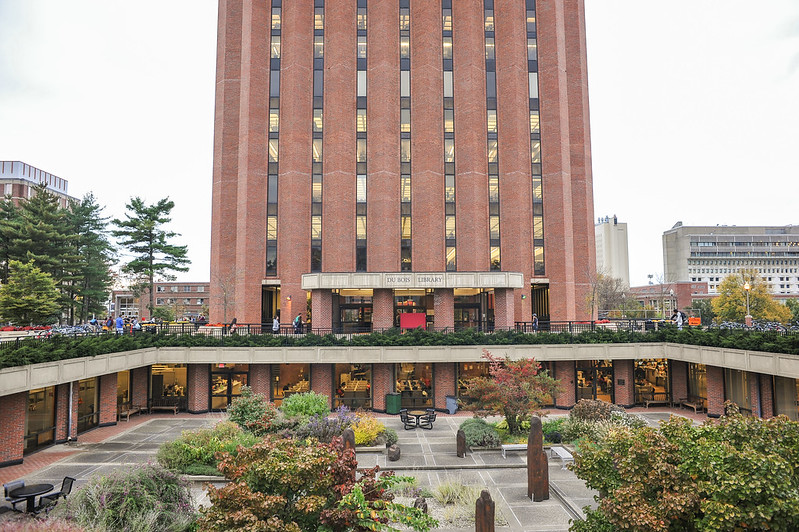
As a man, I want all the things that men are supposed to want. I want to be a gym-rat, eat steak for every meal, drink a raw egg, crack open a beer on a Sunday and watch the Patriots with my guy friends, etcetera, etcetera.
Except, I hate all the things that men are supposed want; all of them.
Growing up, I was always a little overweight. I’m pretty sure the last sport I played was tee-ball, which I quit before I even entered the second grade, and my middle and high-school careers were full of the arts and theater. My voice was high pitched, I sang in the school choir and nearly every single one of my friends were girls.
I remember in fifth grade, I invited all the “cool guys” over for my birthday party. You know, the coolest kids who played pee-wee football and farted on each other because they thought it was the funniest thing to have ever happened.
And even in high school, while my male classmates were hitting the gym, making the varsity sports teams or dating the prettiest girls in school, I was swimming in the pool with my t-shirt on.
My whole life I’ve felt like I’ve tried to fit into this mold of being a “typical guy,” even though I’ve never felt totally in-tune with my own masculinity or physical appearance. Shrouded in a storm of pubescent angst and confusion, I spent much of my childhood being angry because I just wasn’t “one of the guys.”
I remember always trying to speak in a lower tone of voice, avoiding saying “s” words because of my lisp and remaining explicitly aware of any flamboyant motions that I made with body. I consciously reminded myself not to move my wrists, cross my legs or do any other things men “didn’t usually do” out of fear that people would think I was, dare I say it, gay.
Because I’m not gay, I’m bisexual.
The other day I was having a conversation with a few people who I’ve known for a while, but was never super close with personally. We began speaking on the topic of relationships and heartburn immediately set in, as all I could think was, “just act straight.” But my plans were foiled when someone asked if I was gay.
The fear that I have always had of being perceived as gay is rooted in the systemic societal norms that label queerness as negative. No one ever makes fun of or accuses someone of being straight.
But it was within this fear that I saw the naïveté, the blatant insecurity and the unfairness to myself and others for being shameful for a piece of my identity that I did not choose or would ever want to change.
So when they asked, I responded, “I’m bisexual,” to which they responded, “I knew it.”
Why did they know it? What was wrong with me? How could I have hidden it better? I came out to a few of my friends and my then-girlfriend during the fall semester of my junior year, and they were all accepting and supportive of what I had shared.
But this felt different.
In this instance, I felt forced to share a piece of myself. A piece that is so personal, so important and so fundamental in how I act, what I wear, how I think, how I lead, how I work and how I build my relationships, that I felt it was all wrong.
I asked them, “How did you know?” to which they said, “I could just tell. I mean, do you see your hair in that picture?” as they pointed to a photo of myself from freshman year that was hanging on the wall.
I’m big enough to admit that the haircut was bad, but how was that one thing so representative of such a large piece of my identity? Most, if not all people have hair at some point in their life, so what made mine gay? Or bisexual? What makes anyone’s hair gay? Hair has no gender and no sexual orientation. As far as I know, it’s just keratin.
This incident was not meant to be hurtful, but I still walked away feeling hurt. “People are so sensitive nowadays,” they claimed. Was I being sensitive or a “snowflake?” I came to the conclusion that the answer, undoubtedly, was no.
For as long as I can remember, people have questioned my identity. The way I talked, with every pronunciation of a word beginning with an “s” slithering into their consciousness, planted some sort of seed of femininity into their perception of me. The way I dressed did the same, as my pants were supposedly too tight, even though the last time I checked those people weren’t the ones wearing, buying or feeling comfortable in them. The way I lead has also been questioned, because maybe if I had been taller with a deeper voice, and maybe if I wasn’t so “confrontational” or “pushy,” then I could lead how a man is supposed to lead.
To all this I have one thing to say: get over it, get over yourself and adjust.
No one has the right to police a piece of your identity, nevertheless call you out and plant a seed in your head, making you think that there is a single thing wrong with the way you are. We do not choose how we enter the earth. We do not choose our biological sex, our skin color, our eye color, our hair color, our gender, our sexuality, our economic status or our perception of what it means to be a man or woman.
But what we can choose is how we act, react and educate ourselves regarding issues such as identity. I label myself as bisexual because I feel the need to identify as something, but that by no means is to say that gender and sexuality should have limits, and they should certainly never have expectations.
So don’t believe for one second that you have to masquerade as something you’re not. You don’t owe anyone an explanation for who you are. How you choose to identify is your choice, and who you disclose that information to is your business.
And for those looking for a secret formula on what you need to do in order to guess or learn about someone’s identity, here it is: don’t be an asshole.
Robert Rigo is the Collegian Editor in Chief and can be reached at [email protected].


















OKC • Mar 28, 2017 at 4:13 pm
Don’t be ashamed of who you are, Rigo. Be with guys, probably not with girls, whatever works. Just don’t hate on steak, the finest of all the food groups!
David Hunt 1990 • Mar 25, 2017 at 12:18 pm
It’ll be interesting to see you explaining to the local Islamic refugees, as they tie you up and toss you off a building, how they’re violating your “safe space”.
Marjorie Rigo • Mar 24, 2017 at 4:07 pm
Great article so proud of this incredible young man.
David Fitzgerald • Mar 23, 2017 at 10:00 pm
thank you Robert Rigo
perhaps you know already but dailywire.com has written an article responding to you
Alec • Mar 23, 2017 at 1:24 pm
Right on!
Matt • Mar 23, 2017 at 10:11 am
I loved this piece. As someone who grew up in a similar environment surrounded by people, especially my male friends, who constantly made me feel like a scapegoat and a “snowflake” if I did not act “like a man”, this really hit home for me. I’ve started recognizing how being pressured into heteronormative behavior leaves me feeling ridiculously unfulfilled, and articles like this help remind me that there are other people who feel the same. Thank you.